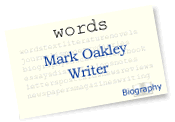

|
| Faith is a collage, words are a key |
| Poetry is faith |
| The light in the shadow of the divine |
The light in the shadow of the divine
To read poetry, then, could be vital in exploring the plausibility of faith. Poetry captures its experience. It can't be defined. It's both startling and oddly familiar to us at the same time. Poetry has been described as "what gets lost in translation". It requires us to humble the rational and, as Heaney has argued, "it can address, counterweight, balance and tilt the scales of reality towards some transcendent equilibrium". Poetry speaks truth to power. Poetry reassures us that we can be meaningful and imprecise and that the curse of literalism that prowls around can be challenged by the celebration of a text having more than one meaning.
Kathleen Raine wrote that "words are a treasury when they speak of heart's truth, mind's inheritance, from one to another told and re-told." "Poetry," continues Heaney, "has to be a model of inclusive consciousness. It should not simplify. Its projections and inventions should be a match for the complex reality which surrounds it and out of which it is generated". And if this is so it is easy to see why Cardinal Newman argued that "for Christians, a poetical view of things is a duty."
So you probably know that the mother whale gave her baby whale some very sound advice when she said, "Beware, my dear, it is when you are spouting that you are most likely to get harpooned." I want to end by admitting that I am not an educationalist except in the preaching and assembly work I do, and if there are any implications in what I have said for your work, I'm afraid they will have to come from you. But I admit that I am puzzled as to how those who teach about the faiths of the world can not only provide resources - and as I say, we should use literature - but can also equip young people with the skills to engage with the life of the spirit and the vocabulary we need to express it, how can poetics be appropriated? How can we find a language that knocks language sideways - an art of unease, perhaps? It will need teachers able to encourage curiosity, empathy, daring, unafraid to allow young people both to challenge the faiths and to be challenged by them. Can we make 'mystery' mean more than 'problem'? Can we make it more difficult to say 'easy'? Can we reveal that facts aren't simple? Can poetry become possibility? Can God become more than three angry letters in a book?
I end by giving you just a small example of a poem I once used with young people to explore our notions of identity and selfhood. It was interesting how the simplicity of the poem moved them and led them to speak of some of their own fears, and we even spoke about the human will, which I can be tempted to believe has disappeared. The discussion found itself in the shadows of the divine very quickly and we started to wonder about purpose and providence and the gift-like nature of life. That poem was called 'Names' and it's written by Wendy Cope.
She was Eliza for a few weeks when she was a baby.
Eliza Lily.
Soon it changed to Lil.
Later, she was Miss Stewart in the baker's shop and then
'My love, my darling,' 'Mother'.Widowed at thirty, she went back to work as Mrs Hand.
Her daughter grew up, married and gave birth.
Now she was Nana.
'Everybody calls me Nana' she would say to visitors.
And so they did - friends, tradesmen, the doctor.In the geriatric ward they used the patients' Christian names.
'Lil' we said, or 'Nana'.
But it wasn't in her file.
And for those last bewildered weeks
She was Eliza once again.
"Full religion," wrote Les Murray, "is the large poem in loving repetition". And God is the poetry caught in any religion - caught, not imprisoned. Caught as in a mirror that He attracted, God being in the world as poetry is in the poem, a law against closure. And we are all explorers before we are ever illustrators.
So to recover this sense of God, to understand that the more opinions you have the less you see, to be attentive to the significant and the unveiled, to view oneself less as a soldier than as an artist for God, this will be a privileged task. It will be, in the words of R.S Thomas, "to operate on as many levels as possible, mostly failing, being self contradictory, open to refutation on the charge of inconsistency but occasionally, perhaps, setting up overtones."
And perhaps that is education.